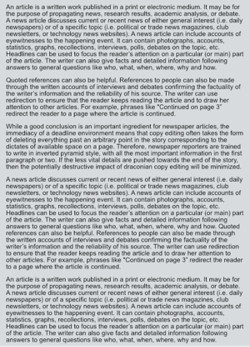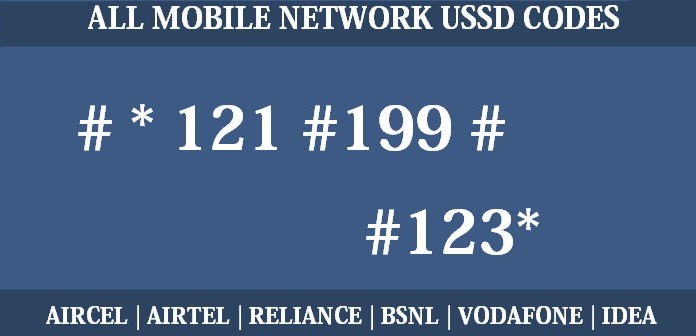Despite the fact that there are countless blogs on every field of knowledge, topic or product out there, there is always room for one more to join the club of successful bloggers. But whether you will make it or not can be affected by many factors, most of which you have control over.
In this post I am going to share with you some of the most fatal mistakes that I have made in the past when I was a beginner blogger/website owner, and that many other beginners make as well. I hope my tips will help you get on the right track to creating a successful and profitable blog that will endure the test of time.
1. Copying Other Successful Blogs
 You may have heard stories about successful bloggers who make tens of thousands of dollars a month from their blog, and there are many who do. In fact, it was those success stories of self-employed, work-from-home website owners that have inspired and motivated me to become one of them.
You may have heard stories about successful bloggers who make tens of thousands of dollars a month from their blog, and there are many who do. In fact, it was those success stories of self-employed, work-from-home website owners that have inspired and motivated me to become one of them.
So you might be thinking; well, if it worked for them then maybe it can also work for me if I follow in their footsteps and do exactly what they did, right? Wrong! And I had to learn that the hard way.
One of the biggest mistakes I made as a beginner was being basically a copycat. I’d create blogs/websites that look and feel the same as some successful blog and then simply rewrite the same content on my new website. Well, that failed miserably!
You want to succeed as a blogger/site owner? Then create your own unique style and content. Don’t be a copycat, for copycats are destined to fail!
It is okay to look at others’ blogs for inspiration and ideas, but always create your own unique and original piece. Actually, whenever you want to create a new post you should first do a Google search on the topic and take a quick look at the 5-10 top ranking pages in search results. Not in order to write something similar, but rather in order to write something different.
You want your new post to hopefully rank among or above those top results, but you are not likely to achieve that by creating an article that is essentially a slightly modified/rewritten copy. What you should be thinking is; how can I write a better article, a more helpful article, a more interesting article, a richer article (with photos, videos, resources, etc.), a better presented article than those that already exist?
Find your own original style, build your own brand, and create a distinctive online presence! That is the only way to stand out from the crowd and be able to compete with other successful bloggers. Otherwise, your blog will get lost in a big ocean of “similar” blogs.
2. Writing Plain and Dull Blocks of Text
 Nothing looks more boring and repulsive to the reader than a long wall of text with one big block of text after another from start to end. Most of the time when I see such bulky articles I’d immediately close the page or hit the “back” button, and so do many other readers.
Nothing looks more boring and repulsive to the reader than a long wall of text with one big block of text after another from start to end. Most of the time when I see such bulky articles I’d immediately close the page or hit the “back” button, and so do many other readers.
Most people nowadays do not have time to read lengthy articles and they just need quick access to the information or answers they are looking for. Here are some tips to creating more appealing, more useful and easier to read posts:
- Use subheadings: This is a must in almost any type of article you are writing. It makes the content more organized, easier to digest, and less of a “wow! I’m not reading all that wall of text, I’m outta here!”
- Use lists: Most readers love list-style articles (listicles) because they are much more fun and interesting to read. You can either write the whole article in list-style or add lists wherever suitable within the article.
- Use photos and videos: This is a great way to add some liveliness and interactivity to your post. If you have relevant photos, videos, infographics, or any other type of media content then include those in your post.
- Keep it short: Sometimes a detailed and thorough article (like this one!) is necessary, but for the most part, readers would be looking for some quick and short answers. Try to keep the post and each paragraph in it as short as possible, and don’t stuff it with unnecessary information just to make it look more meaty!
- Add a list of the contents: If you are writing a fairly long article you should add a clickable list of the contents (subheadings) at the top. This will make it easier for readers to quickly jump to the point they are interested in. That’s one of the simple reasons why Wikipedia articles are awesome!
3. Going for Most Lucrative Niches
 This one specifically pertains to those who are creating a blog for affiliate marketing. There is a huge earning potential with affiliate opportunities in countless niches, some being more lucrative than others.
This one specifically pertains to those who are creating a blog for affiliate marketing. There is a huge earning potential with affiliate opportunities in countless niches, some being more lucrative than others.
The general rule of thumb is; the more profitable the niche, the more competitive it is, the less likely a beginner will succeed in it.
One of the biggest naive mistakes – which I have personally struggled with for years as a beginner – is picking one of the top paying niches, create a blog or small website about it, and expect to be collecting big checks soon — well, that doesn’t quite work!
You will be competing with many veteran “sharks” and very well-established websites that can easily muscle any newcomer website out of the top rankings in search engines, which would presumably be your main source of traffic. And if you are considering paid search traffic (PPC), you will find that the competition there is even fiercer and much more costly.
I am not trying to discourage you as much as I am trying to give you an idea about what to expect. If you are determined and patient enough, you can succeed in any niche regardless of how competitive it is.
The best advice I can give you is to choose your niche based on your knowledge, experience and interest in the subject matter rather than how much it pays. Pick a topic that you believe in and have passion for, a topic you can create helpful and distinguished content about, a topic you are willing to commit to for years and years to come.
A quick route to failure and disappointment is to go with a lucrative niche that you have little knowledge about, then create a blog, throw in some shallow articles, and expect it to pay off. It most likely won’t!
So to sum it up, choose a topic you can contribute to with your own unique perspective and experience, and try to avoid high-paying niches and products as those would be much harder for a beginner to compete in.









